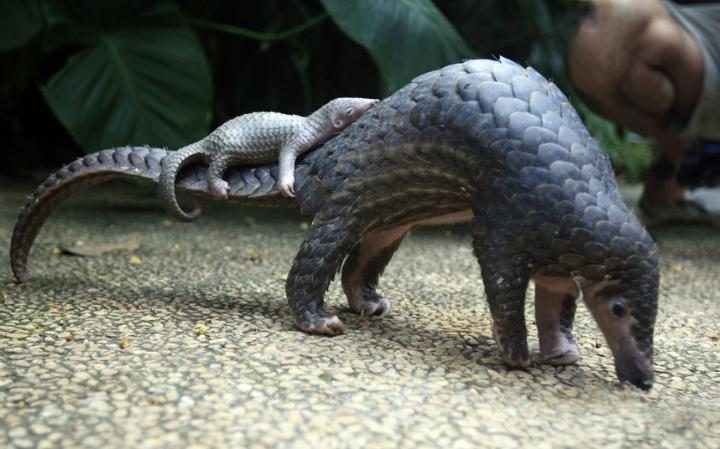The Environmental Investigative Agency (EIA) says legal loopholes in wildlife trade between Uganda and China could facilitate an illicit shadow trade in the scales of endangered pangolins.

This is contained in a report released on Tuesday, April 19, 2022, by the London-based environment agency signed by Mr Paul Newman, EIA Senior Press & Communication officer.
The report highlighted the case of a Chinese businesswoman who set up shop in Uganda.
It said that despite the activities of Ma Jinru coming to the attention of authorities in the East African country on several occasions, including her arrest for possessing a large stockpile of pangolin scales, no conclusive legal action had ever been taken against her operation.
EIA, however, is concerned that her case exposes fundamental flaws in the wildlife trade system between both countries which may be exploited to traffic the illegally sourced scales of endangered pangolins, the most widely trafficked mammal on the planet.
EIA Wildlife Campaigner, Ceres Kam, said: “Ma Jinru may have avoided prosecution, but her activities indicate a credible risk that illegal trade may have occurred and further expose significant loopholes which need to be closed as a priority.”
The report noted that African pangolins were being pushed toward extinction as the result of the transnational trafficking of their scales, primarily driven by demand from China for use in traditional Chinese medicine (TCM), both legally and illegally.
According to it, the Chinese Government is using its massive Belt and Road Initiative, a global development strategy, to vigorously promote the expansion of TCM supply chains and markets on the African continent.
The report alleged that Ma Jinru moved to Uganda in 2013 to establish a pangolin trade operation, ostensibly for the commercial breeding of pangolins to feed the TCM trade, which she operated with the assistance of close associates and Ugandan wildlife trafficker, Smith Ewa Maku.
EIA’s 2019-21 investigation into their activities suggested that Ma Jinru move to Uganda has enabled her to deal in pangolins by exploiting laws permitting legal wildlife trade.
Crucial to her endeavour was the alleged backing she obtained from high-ranking individuals in the TCM industry as well as both the Chinese and Ugandan Governments.
The report explained that Ma Jinru, though presenting herself as a pangolin conservationist and using her government connections to legally establish a facility, which she claimed would be for breeding pangolins, appeared to have been working with Maku to export pangolin scales of legally questionable origin to China.
The uplisting of pangolins to Appendix I of the Convention on International Trade in Endangered Species (CITES) in 2016 – its highest degree of protection – meant it was no longer lawful to commercially trade in pangolin scales or live pangolins.
No longer able to gain legitimacy through legal wildlife trade permits, EIA understands that Ma Jinru instead planned to traffic a large stockpile of pangolin scales.
“She further told undercover EIA investigators she has plans to establish TCM factories in Uganda and the Democratic Republic of the Congo.
“Through which she intends to process pangolin scales and other raw TCM ingredients into products for export to China and for local sale,” the report said.
Kam added: “Ma’s case serves as a cautionary tale of how the growing footprint of China’s TCM industry in Africa.
“And the simultaneous abuse of legal loopholes in wildlife trade systems has the potential to exacerbate the already severe overexploitation of the continent’s immensely rich biodiversity.
“We make specific recommendations in the report, including the need for further investigations into the roles of Ma Jinru and Maku in the pangolin trade and implementation of measures to prevent the wildlife trafficking risks of TCM expansion in Africa.”
The Environmental Investigation Agency (EIA) investigates and campaigns against environmental crime and abuses.
Its undercover investigations expose transnational wildlife crime, with a focus on elephants, pangolins and tigers, and forest crimes such as illegal logging and deforestation for cash crops such as palm oil.
By Fabian Ekeruche
